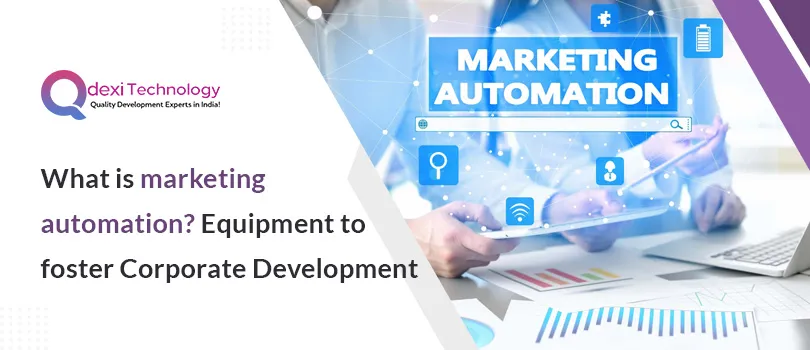In the fast-evolving world of digital marketing, businesses are always seeking innovative ways to streamline operations, increase efficiency, and ultimately drive growth. One such powerful tool that has revolutionized marketing strategies is marketing automation. By enabling companies to automate repetitive tasks, nurture leads, and make data-driven decisions, marketing automation has become a game-changer for corporate development. This article will delve into what marketing automation is and how it can foster corporate growth, along with the role of marketing automation agencies and the value of marketing analytics in this ecosystem.
What is Marketing Automation?
Using software and technology to automate monotonous marketing chores across several channels is known as marketing automation. These tasks include email marketing, social media posting, lead generation, and more, allowing businesses to efficiently manage their marketing efforts with less manual intervention. By automating these processes, companies can focus on more strategic aspects of their campaigns and maintain consistent communication with prospects and customers.
To put it another way, marketing automation guarantees that marketing initiatives are carried out on time and streamlines intricate operations. For example, a marketing automation system can segment customers based on their behavior, then automatically send personalized emails or messages to nurture those leads.
Key Features of Marketing Automation
Some of the key features of marketing automation include:
Lead nurturing: Automated processes provide leads with constant and tailored contact by guiding them through the customer experience.
Email Marketing Automation: Pre-scheduled emails are sent to prospects and customers at the right time, improving engagement and conversion rates.
Campaign Management: Marketing automation platforms enable businesses to manage multi-channel campaigns with ease, integrating email, social media, and more.
Customer Segmentation: Automatically group customers based on various factors like demographics, behavior, and purchase history.
Marketing Analytics: In-depth analysis of campaign performance helps businesses make informed decisions, optimizing their strategies for maximum ROI.
The Role of a Marketing Automation Agency
Implementing marketing automation effectively can be complex, which is where marketing automation agencies come into play. Setting up, maintaining, and improving marketing automation platforms is the area of expertise for a marketing automation agency. These agencies not only handle the technical aspects of automation but also ensure that businesses use these tools to their full potential, aligning marketing strategies with corporate goals.
Marketing automation agencies typically offer services such as:
Consultation and Strategy Development: Crafting an automation strategy tailored to the unique needs of a business.
Platform Implementation: Selecting and setting up the right marketing automation platform for a company's specific goals.
Workflow Design and Optimization: Creating automated workflows for lead nurturing, customer segmentation, and campaign management.
Evaluation of performance is the process of tracking the success of automated programs and modifying strategy based on the results using marketing analytics.
By partnering with a Marketing Automation Agency, companies can leverage the expertise needed to deploy robust automation systems that drive growth and streamline marketing operations.
How Marketing Automation Companies Drive Growth
Many businesses turn to marketing automation companies to foster corporate development. These companies provide comprehensive automation solutions designed to increase customer engagement, improve lead conversion, and maximize ROI. Marketing automation allows businesses to scale their efforts without requiring substantial increases in manpower, making it an essential tool for growth.
Some key ways in which marketing automation companies contribute to corporate growth include:
Enhanced Productivity: Marketing teams can concentrate on strategic planning and innovative projects by automating repetitive operations, which frees up time.
Better Lead Conversion: Automation platforms nurture leads through personalized campaigns, moving them through the sales funnel more efficiently.
Enhanced Customer Experience: Automation ensures that customers receive timely and relevant content, boosting satisfaction and loyalty.
Scalability: As a company grows, automation systems can easily be scaled to accommodate increasing demands without additional manual effort.
Data-Driven Decisions: With detailed insights from marketing analytics, businesses can make informed decisions, optimize campaigns, and allocate resources more effectively.
The Importance of Marketing Analytics in Automation
At the heart of marketing automation is marketing analytics, a crucial component for fostering corporate development. Marketing analytics involves the measurement, management, and analysis of marketing performance data to maximize the effectiveness of campaigns. This data-driven approach allows companies to understand what works and what doesn’t, ensuring continuous improvement.
Some key benefits of marketing analytics in automation include:
Campaign Performance Monitoring: Analytics provide insights into the success of automated campaigns, allowing businesses to tweak strategies for better results.
Customer Insights: Analytics help businesses understand customer behavior, preferences, and pain points, enabling more personalized marketing efforts.
ROI Tracking: By analyzing the return on investment from automated campaigns, companies can allocate resources more efficiently and maximize profitability.
Conclusion
Marketing automation is a potent tool that helps organizations in today's competitive world optimize their operations, increase lead conversion, and scale their growth initiatives. By partnering with a Marketing Automation Agency or marketing automation companies, businesses can leverage expert knowledge and sophisticated platforms to optimize their marketing strategies. Additionally, the integration of marketing analytics ensures that every decision is backed by data, driving better results and fostering corporate development. As more companies adopt marketing automation, those that do so effectively will undoubtedly see a significant boost in efficiency, customer engagement, and overall growth.






